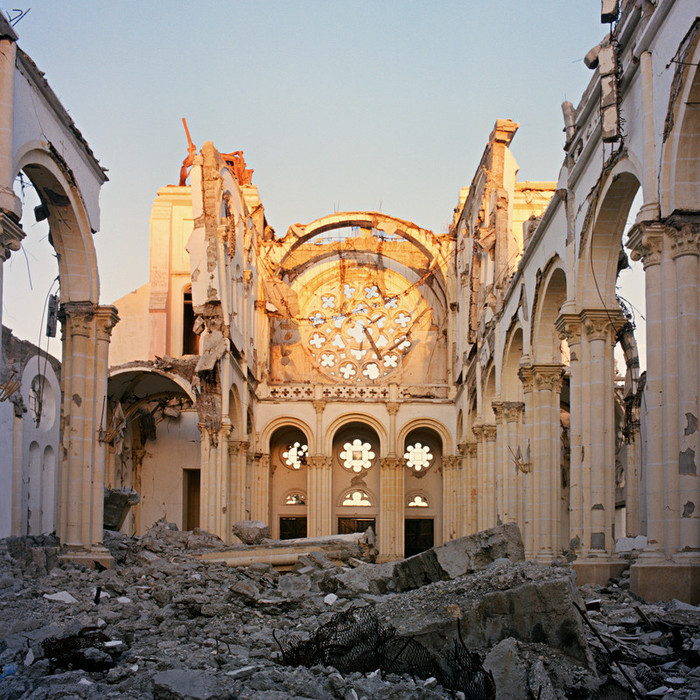Petionville Club - Haiti
© Claire MartinI arrived in Haiti in the middle of election frenzy and within a few days of being there the entire city closed down. International airlines refused to fly, businesses didn’t open and everywhere there were violent road blockades, fires in the street and angry mobs protesting. The Popular candidate “Sweet Mickey” Martelly had not made it into the final run off for presidency and the hugely unpopular
current parties protégé Jude Celestin had made the cut. It was clearly rigged. The people - exhausted from a year of dealing with the grief of their losses from the devastating January 12 earthquake and seeing little chance for change under the current government had little other option than to revolt. They can’t write a letter of complaint – 40% of Haitians can’t write at all..... They clearly can’t create change through a democratic election – the country is one of the most corrupt in the world and they simply can’t continue to go on as they are. What are
the options for a people who have no education, no employment opportunities and consequently little or no control over their destinies? The Western concept of self-determination has little value in a culture that has consistently and for generations been oppressed.
While some riot, most Haitians choose to pray. It is the only real alternative to violent revolution. They wait patiently for the hand of God or the hand of foreign aid. It is not apathy or resignation that makes them take such a passive role in their future, it is simply near impossible to do anything else. A common debate amongst westerners working in Haiti is about the culture of dependency.
It is argued that foreign AID cripples the possibility of internal reform, but it is somewhat a “chicken or the egg “ debate as Haitians depend on AID because there is no internal structure in place to help them better themselves as individuals and as a country.
On my last day in Haiti I met a young woman whose first child – a three- month-old boy had died only a few days earlier of a mystery illness. It was in speaking to her that I understood the extent to which the day-to-day challenges of poverty, and the numerous tragedies they’ve witnessed have created a dangerously hazy concept of crisis. Her baby was sick for three weeks and despite the fact that there was a free medical clinic less than a 5- minute walk away, she did not seek help for her child. I met countless mothers in the camps who were in the same situation, worried for their babies but feeling helpless to do anything more than pray. Sadly the question these mothers face is - at what point does simply being poor and malnourished become a critical emergency that warrants action.
With around one and a half million people internally displaced by the earthquake that devastated the capital Port Au Prince, it is a shocking sight. Every spare piece of land has turned into a tent city and whole suburbs and major infrastructure lay demolished, essentially turning an entire city into a slum.
Frustration is mounting, as the camps that were deemed a temporary measure are now, a year later, looking quite permanent. But still the majority prays and waits patiently for something, anything to give.
click the link to view all the images in the series








